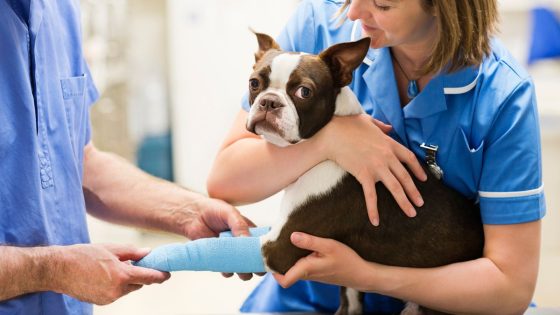Pet owners could be paying too much for medicines or prescriptions, the competition watchdog has said.
It follows a review into the UK’s £2bn veterinary industry by the Competition and Markets Authority (CMA) after concerns pet owners are not getting value for money.
The CMA said it had identified “multiple concerns” in the vet market – with the review prompting an “unprecedented” more than 56,000 responses from pet owners and professionals in the industry – including that pet owners may be overpaying for medicines and not being given enough information about treatments.
The CMA found:
• Consumers may not be given enough information to enable them to choose the best veterinary practice or the right treatment for their needs
• Concentrated local markets, in part driven by sector consolidation, may be leading to weak competition in some areas
• Large corporate groups may have incentives to act in ways which reduce choice and weaken competition
• Pet owners might be overpaying for medicines or prescriptions
• The regulatory framework is outdated and may no longer be fit for purpose
The watchdog said it has provisionally decided it should launch a formal market investigation focused on its provisional analysis of the issues in the sector and is now consulting on this proposal.
The CMA found most vet practices do not display prices on their website – more than 80% of the surgeries checked had no pricing information online, even for the most basic services.
Pet owners also said they are not always informed of the cost of treatment before agreeing to it before agreeing to out of hours treatment.
Around one fifth of respondents said they were not provided with any cost information before agreeing to tests, one in 10 before their pet had surgery, and around half said they were not told about prices before agreeing to out of hours treatment.
CMA chief executive Sarah Cardell said: “We launched our review of the veterinary sector last September because this is a critical market for the UK’s 16 million pet owners.
“The unprecedented response we received from the public and veterinary professionals shows the strength of feeling on this issue is high and why we were right to look into this.
“We have heard concerns from those working in the sector about the pressures they face, including acute staff shortages, and the impact this has on individual professionals. But our review has identified multiple concerns with the market that we think should be investigated further.
“These include pet owners finding it difficult to access basic information like price lists and prescription costs – and potentially overpaying for medicines. We are also concerned about weak competition in some areas, driven in part by sector consolidation, and the incentives for large corporate groups to act in ways which may reduce competition and choice.
“Given these strong indications of potential concern, it is time to put our work on a formal footing. We have provisionally decided to launch a market investigation because that’s the quickest route to enable us to take direct action, if needed.”
The CMA launched its review last September and said it would examine if the takeover of smaller practices by big chains had reduced choice and made the sector more expensive for consumers.
Almost 90% of vets in the UK were independents in 2013.
But that had shrunk to around 45% by 2021, according to latest figures from the watchdog.
It also said the cost of care for household pets had soared faster than inflation – putting an extra strain on households amid the cost of living crisis.
It follows concerns in recent years about an increase in the number of animals being abandoned, which charities suspect is because many owners can no longer afford to look after them.
Some pet owners have even cut back on their own creature comforts and essentials in order to fund care for their pets, according to vet charity the PDSA.
Source Agencies



